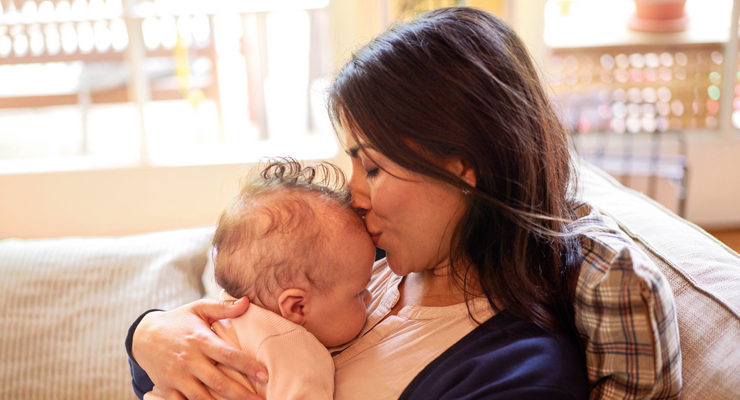
Babies by nature are very fragile, and require extra attention. The key is to avoid common mistakes that can put a baby at harm’s way.
When a newborn baby is brought home from the hospital, it’s a time of joy and happiness that’s often supplemented by some anxiety as parents want to do everything within their means to keep their child safe and secure.
With September being Baby Safety Month, there are simple and often lifesaving steps you can take to prevent injury and keep infants in good health, according to Dr. Natasha West, a pediatrician with Kaiser Permanente Southern California, which is headquartered in Pasadena.
“Babies by nature are very fragile, and require extra attention,” she said. “The key is to avoid common mistakes that can put a baby at harm’s way.”
Getting Enough Sleep
Because parents are often exhausted with newborns, many allow their infant to sleep for long hours during the first weeks of their lives, Dr. West said. This limits the calorie intake for the newborn and can lead to weight loss, jaundice and life-threatening medical concerns.
“Newborns need to eat 8-12 times per day, which means sleep time should not exceed three hours at a time, especially in the first week of life,” she said. “As the infant gets older, sleep time can typically be extended.”
Another common mistake parents make is sleeping with their infant in the same bed, cautioned Dr. West, who practices in Yorba Linda. Although this often works out for many, the risk of suffocation is very high, she explained.
That’s because exhausted parents can roll over onto the infants or the infants can topple onto hard surfaces causing injury. What’s recommended is to have the infant sleep in a crib or bassinet in the same room or close to the parents, so you’re able to hear and quickly respond to needs or distress.
“The best practice is to always place your child in an enclosed safe environment such as a crib, bassinet or pack n’ play if you need to leave them for any reason,” Dr. West said. “If you place them in a car seat, the seat needs to be on a low surface with no risk of toppling over. This also applies to any swings or other items the child is placed in regularly.”
Preventing Sudden Infant Death Syndrome (SIDS)
Sudden Unexpected Infant Death (SUID), which includes Sudden Infant Death Syndrome (SIDS), is the leading cause of injury death in infancy, Dr. West noted. SIDS remains the leading cause of post neonatal mortality, and Black and Native American/Alaska Native infants die at rates more than double that of white babies.
Dr. West acknowledged sleep can be a big challenge for families with babies, but noted following safe sleep recommendations can prevent many infant fatalities.
These include:
- Place infants on their backs for sleep in their own sleep space with no other people.
- Use a crib, bassinet or portable play yard with a firm, flat mattress and a fitted sheet.
- Avoid having your baby sleep on a couch or armchair or in a seating device, like a swing or car safety seat (except while riding in the car).
- Keep loose blankets, pillows, stuffed toys, bumpers and other soft items out of the sleep space.
- Breastfeed your baby, if possible, and avoid smoking.”
The American Academy of Pediatrics offers additional important infant sleep safety advice.
Importance of Vaccination
Many families have personal beliefs or experiences that create some fear or hesitation when it comes to child vaccination. However, it’s important to know that vaccines have been around for decades, and the vast majority of children do very well after being vaccinated.
In special circumstances, accommodations are made for those children who have a history of a reaction or medical limitation or restriction to the vaccines. Otherwise, the vaccines are safe and help prevent or lessen the impact of childhood diseases. This is known as ‘Heard Immunity.’
“When the greater community is immunized and healthy, everyone benefits,” Dr. West said.
The Centers for Disease Control and Prevention provides information regarding current recommended vaccine schedule for children by age.
Choking Hazards
Choking is a common childhood occurrence, Dr. West said. However, many safety measures can be implemented to help reduce the risk of death. Children starting solid foods are often at risk of choking, she said, so make sure that starter foods offered are appropriate for the milestones reached by your child.
“Some children may not sit up well or have appropriate upper body control at six months, so Baby-Led Weaning or other solids may not be appropriate, at least initially,” Dr. West said. “That’s why parents should always monitor their small children when introducing new foods.”
If the child has no teeth, purees are more appropriate for consumption, Dr. West noted. “It’s also good to have a routine of sitting at a table in a highchair or other safe designated space for mealtime. Small objects, toys, batteries and any hazardous objects or substances should remain out of the reach of small children. Avoid foods with sharp edges or bones, as well.”
If your child is choking, call 911 right away or have someone else call, Dr. West continued. If you’re trained to do abdominal thrusts, also known as the Heimlich maneuver, do so right away. If not done correctly, however, this maneuver could hurt your child.
Dr. West stressed not to reach into the mouth to grab the object or pat your child who’s choking on the back, as that could push the object farther down the airway and make the situation worse.
“I would recommend taking a Baby Basics CPR class,” Dr. West said. “This will help with general maneuvers to help with keeping your baby safe. Check your local resources on classes offered.”
KidsHealth.org offers some important information on how to handle choking incidents.











